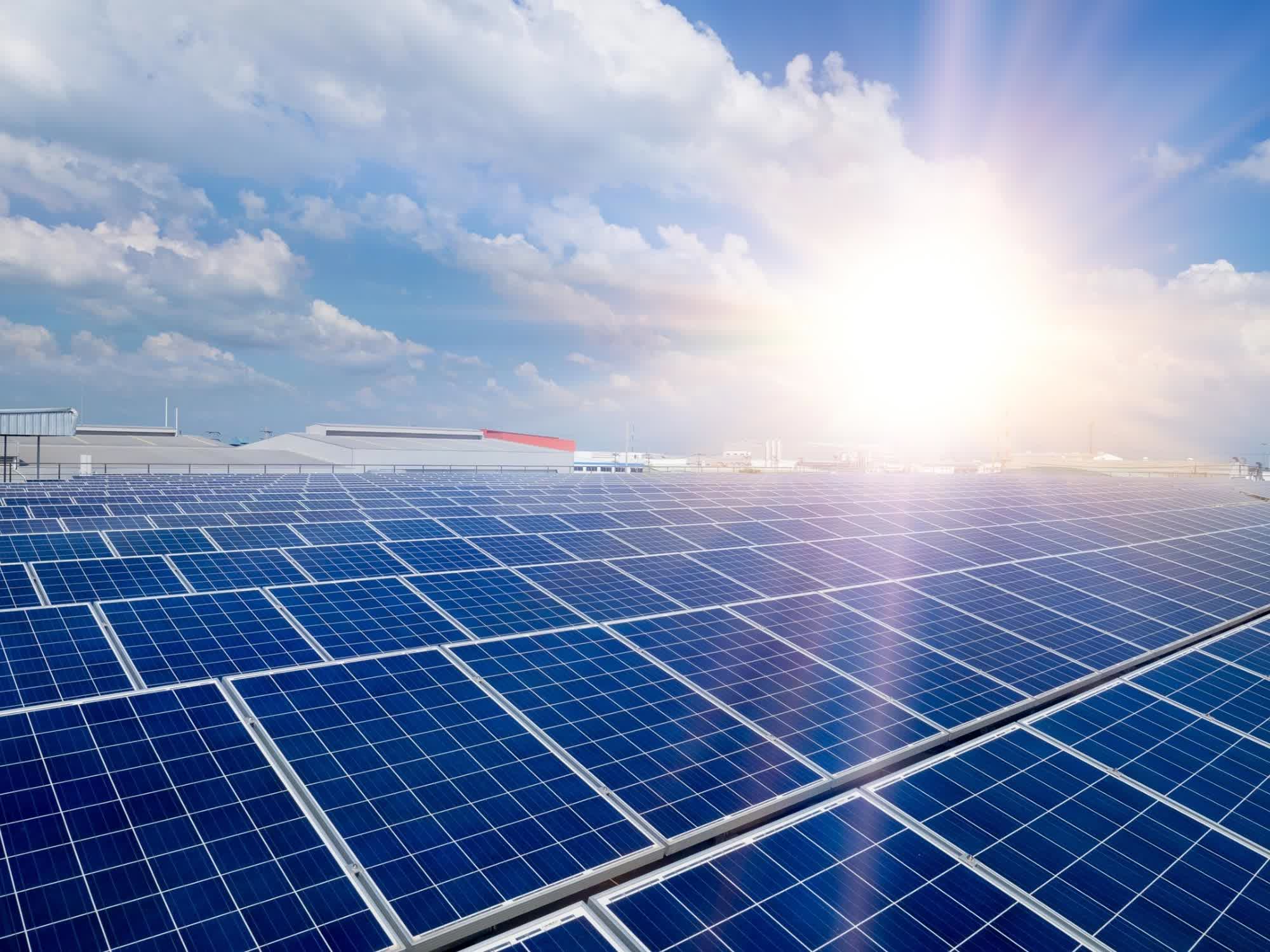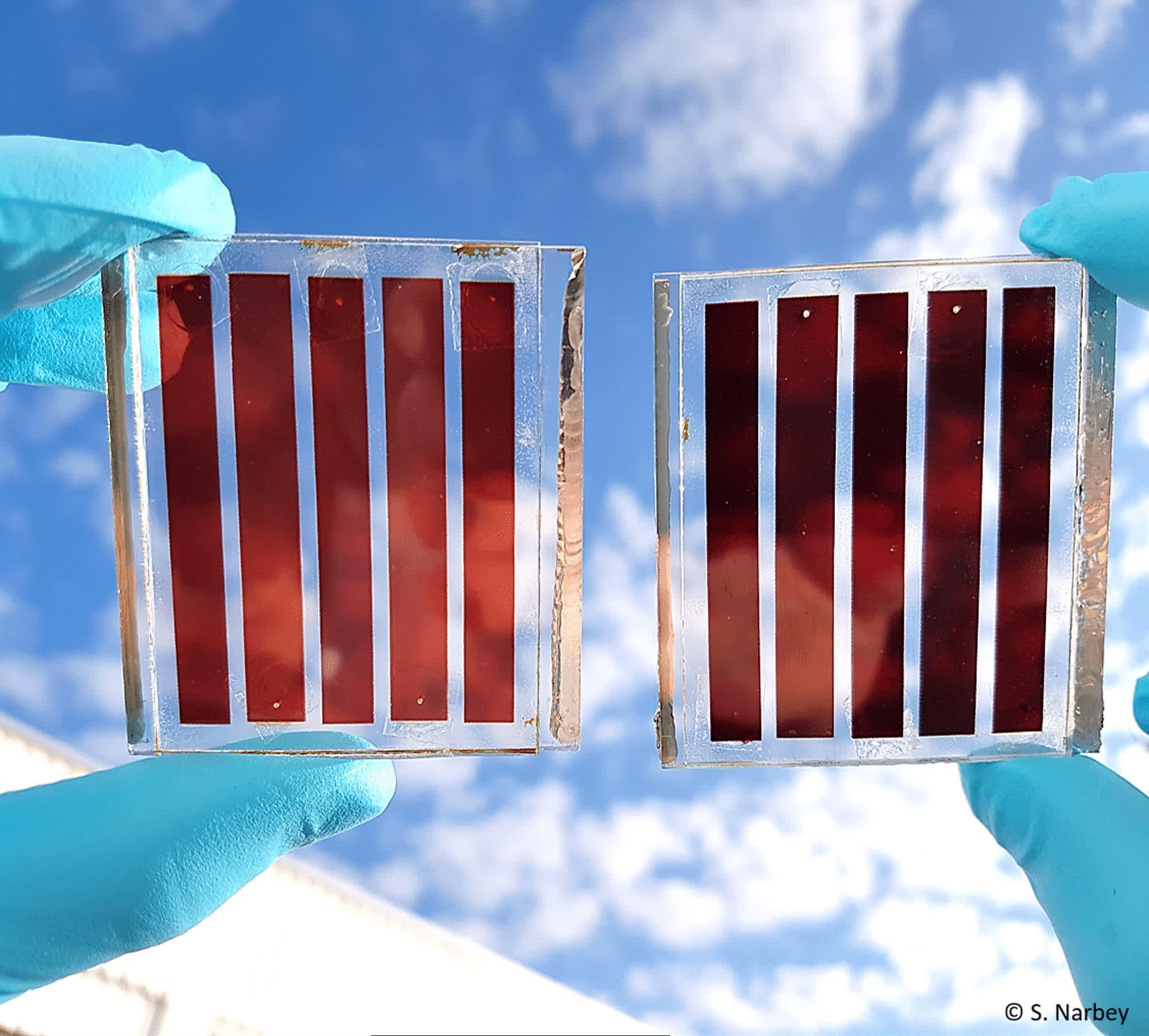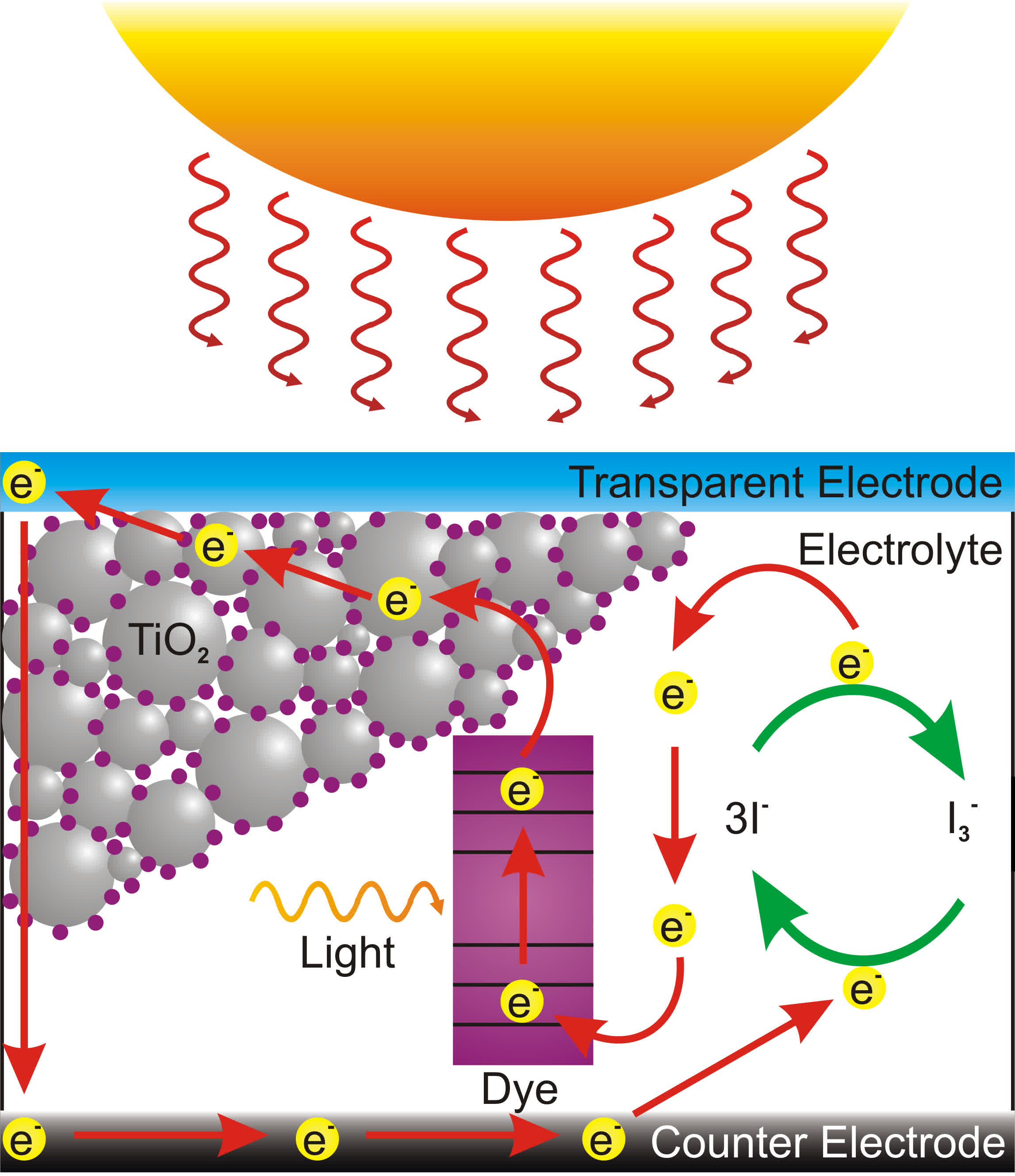Forward-looking: Dye-sensitized solar cells (DSCs) are cheap, transparent, and flexible. The promising technology set a new record in efficiency for turning visible light into electric energy, making it viable for use as energy-collecting windows.

A team of scientists at the École Polytechnique Fédérale de Lausanne (EPFL) in Switzerland developed a new kind of dye-sensitized solar cell (DSC). Its vastly improved efficiency promises cheap, transparent, and ubiquitous energy-generating panels. Widespread adoption could help the world build a future free from fossil fuels and greenhouse gases.
Also known as Grätzel cells, modern DSCs were co-invented by Brian O'Regan and Michael Grätzel in 1988 as an alternative low-cost solar cell. Based on a semiconductor formed between a photo-sensitized anode and an electrolyte, the photoelectrochemical system turns electromagnetic radiation into electric energy. The panels are transparent and cheap to manufacture. They can be fabricated in multiple colors and are already used in some buildings with glass facades, like the Swiss Tech Convention Center.

Furthermore, it is possible to manufacture DSCs to be flexible, meaning they could be suitable to embed into portable electronic devices and IoT appliances. Current dye-sensitized solar cells are sold commercially on a large scale but are less efficient than conventional solar panels in converting sunlight to energy.
Recent advancements in photosensitizers and other components of DSCs have improved the conversion efficiency under both solar and ambient light conditions. Now, the EPFL team has developed a new approach that can bring the efficiency rate up to 15.2 percent for the first time under simulated sunlight, maintaining long-term operational stability for over 500 hours during testing. By increasing the active area to 2.8 cm2, the power conversion efficiency reached a maximum rate of 30.2 percent.

In their study published in Nature, the scientists achieved groundbreaking results by improving the packing of two newly designed photosensitizer dye molecules to enhance the DSC's photovoltaic performance. The team explains that the new photosensitizers can harvest light across the entire visible light domain.
These new findings "pave the way for facile access to high-performance DSCs and offer promising prospects" for different applications. Efficient DSCs could one day become power supply units and battery replacements for low-power electronic devices, using simple ambient light as the primary energy source. At the same time, large buildings and greenhouses could feed the power grid by generating more power than they use.
https://www.techspot.com/news/96467-low-cost-solar-cells-reach-new-efficiency-record.html